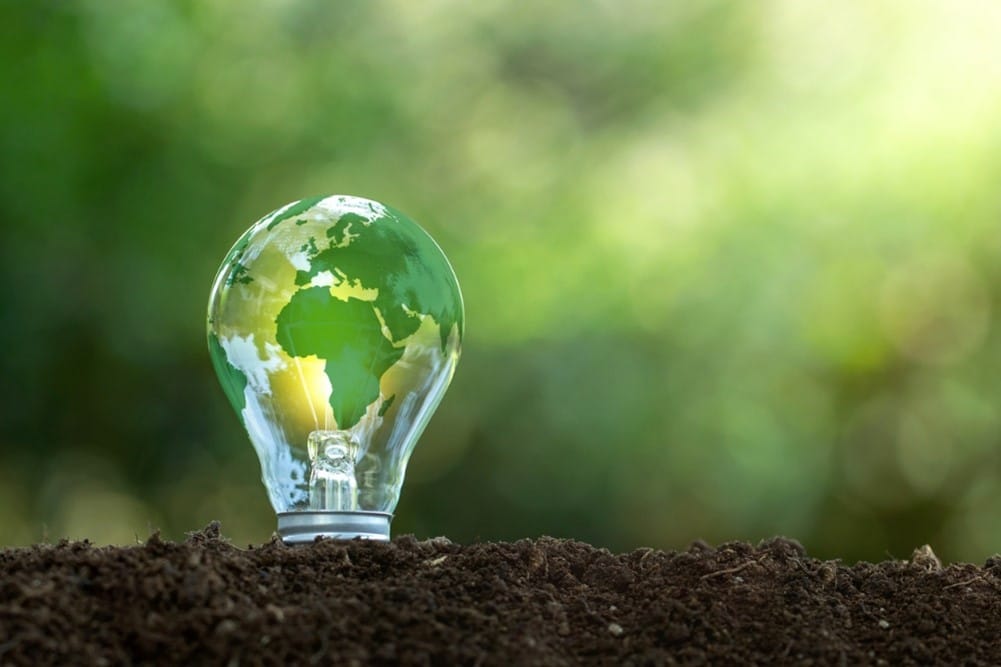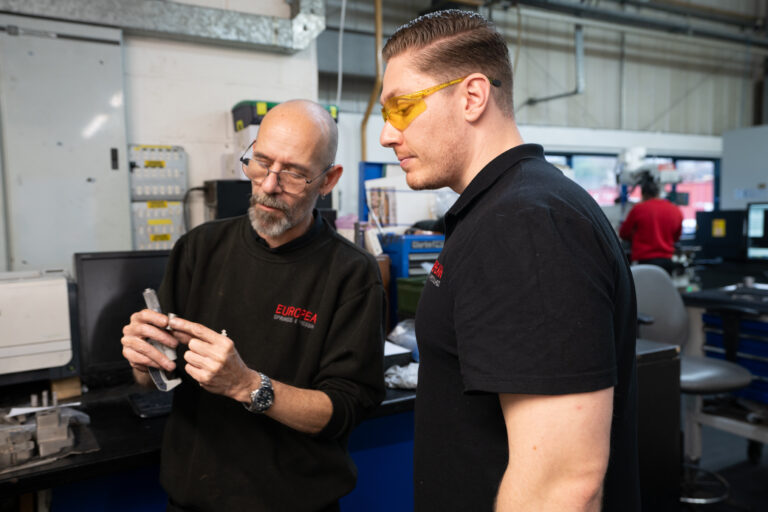As we bid farewell to 2023, it is time for us to share the latest developments in the UK manufacturing industry. The past twelve months have been nothing short of remarkable for our sector, a sector that continues to evolve at a fast pace. And while we look forward to the start of 2024, it is still crucial to stay abreast of the latest developments that have shaped and will continue to shape the future of our industry.
In the dynamic landscape of manufacturing, staying informed is not just an advantage; it is a necessity. Our sector’s resilience and adaptability have been on full display throughout the year as manufacturers across the globe embraced challenges and seized opportunities. From the integration of AI on factory floors to sustainable practices redefining production processes, every news headline has been decisive in shaping the future of manufacturing in 2023.
In this blog, we will specifically focus on sustainability, which is currently one of the most urgent aspects to discuss. Read on to learn more about how sustainable activities are improving the manufacturing industry.

Eco-Friendly Horizons: Manufacturing’s Pledge to Slash CO2 Emissions by 2030
In an era where environmental sustainability has become a global demand, the manufacturing industry is taking bold strides towards a greener future. The commitment to lower CO2 emissions by 2030 is not merely a pledge but an indispensable mission that the entire sector is undertaking worldwide. From innovative technologies to transformative practices, many manufacturers are implementing many new processes, all aimed at reducing the carbon footprint of both their facilities and their supply chains.
Innovations Driving Sustainability: Advancements in Machinery and Renewable Energy
Manufacturers are leading a technological revolution to reduce CO2 emissions by investing in cutting-edge automated machinery. Advanced automation systems are becoming the main drivers of sustainable manufacturing. These technologies inspired by Industry 4.0 optimise energy consumption, minimise waste, and enhance operational efficiency. By upgrading their infrastructure, manufacturers are keeping pace with the demands of modern production and moving significant steps towards a sustainable future.
Another valuable element the manufacturing industry is adopting to achieve the ambitious target of lowering CO2 emissions is increasingly turning to renewable energy sources. Solar, wind, and hydropower are emerging as key players in powering manufacturing operations. For example, the installation of on-site renewable energy systems, coupled with energy storage solutions, is revolutionising the way manufacturers approach production, paving the way for a greener manufacturing ecosystem.
Sustainable Practices: Circular Economy Principles and Innovative Methods
Circular economy principles are helping manufacturers across all industries to minimise the environmental impact of their supply chains. Taking steps like designing components for products with longer lifecycles, incorporating recyclable materials, and establishing take-back systems for end-of-life products is becoming the standardised procedure. This shift not only reduces waste but also transforms manufacturing processes into more resource-efficient and eco-friendly endeavours. The circular economy is a key driver in achieving emission reduction targets while fostering a sustainable approach to production, and the fact that manufacturers are putting it into practice means they are on the right track.
The implementation of innovative methods such as 3D printing prototypes and modular design is also gaining momentum in the industry’s goals for increased sustainability. These approaches enable more efficient use of materials, reducing both resource consumption and waste generation. Manufacturers are realising that sustainability and innovation go hand in hand, and these practices are reshaping the industry’s landscape. As the manufacturing sector evolves, these innovative methods are becoming integral to achieving the 2030 emission reduction goals.
Liabilities in the Age of AI and Automation
While embracing sustainability, spring manufacturers are also navigating the challenges and opportunities that come with the integration of artificial intelligence (AI) into Industry 4.0’s existing automation. The use of AI-driven systems, such as autonomous vehicles and factory robots, raises questions about liability, and the manufacturing sector is facing the need for universally accepted guidelines to avoid uncertainties. The importance of global collaboration and the establishment of best practices cannot be overstated. At European Springs, we are committed to constantly sharing insights and experiences to create and foster the most sustainable approach to AI adoption.
A Green Legacy for Future Generations
As manufacturers pledge to reduce CO2 emissions by 2030, their commitment extends beyond a mere adoption of sustainable practices; it represents a proactive endeavour to leave an indelible mark on the legacy of future generations. This commitment goes beyond a response to a current trend; it is a meaningful acknowledgement of the responsibility borne by the manufacturing sector in shaping the future of our planet. The connection between technological innovation and eco-friendly practices is at the heart of this transformative shift in the manufacturing landscape. As industry leaders, policymakers, and the global community join forces, a collective effort is underway to position the manufacturing sector as a dynamic force propelling the transition towards a world that is not only sustainable but inherently greener.
This journey toward lower CO2 emissions means more than just an industry-specific initiative; it is the symbol of a shared commitment echoing across borders and sectors. The collaborative spirit ingrained in this effort shows a dedication to safeguarding the Earth. Such a pledge not only addresses the immediate challenges of reducing carbon footprints but also sets the stage for a legacy of responsible manufacturing practices, illustrating that the industry is not just adapting to change but actively participating in the co-creation of a sustainable and harmonious world for posterity.
European Springs & Pressings’ Commitment to the Environment
The power to shape the future of the manufacturing industry and the world at large rests firmly in our hands. As we embark on 2024, we will continue to support sustainable technologies and emerging innovations while sharing knowledge and resources.
At European Springs & Pressings, our pledge to sustainability extends beyond a mere objective; it is ingrained in our business philosophy and guides our every action. Recognising the importance of preserving the environment, we continually strive to improve our manufacturing processes and incorporate eco-friendly practices throughout our operations. If this is an important aspect of your business and you want to learn more about our commitment, contact us today, and we will be happy to answer your questions.











